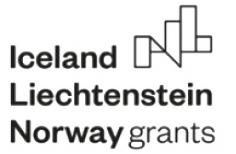About the project
Gender equality as a condition for sustainable socio-economic development and welfare is widely acknowledged. However, as a concept, gender equality has been shaped through processes of social construction involving various policy actors, and is dependent upon a significant background that contributes.
Its meaning is fluid, undergoing shifts in emphasis and scope, and it remains a constantly contested issue.
Religion is central to the meaning and implementation of gender equality. All religions provide some reflection on gender and embody gender ideologies in their teachings and practices.
To understand the influence that religious communities have on gender regimes in specific national contexts, the project focuses on four countries - Lithuania, Latvia, Estonia and Norway.
They share many common features, such as having Christianity as their majority religion and formally supporting the ideal of gender equality, but there are also significant differences that provide opportunities to gain insights into the interaction between religion and gender equality.
The research leading to these results has received funding from the EEA/Norway Grants 2014-2021.
